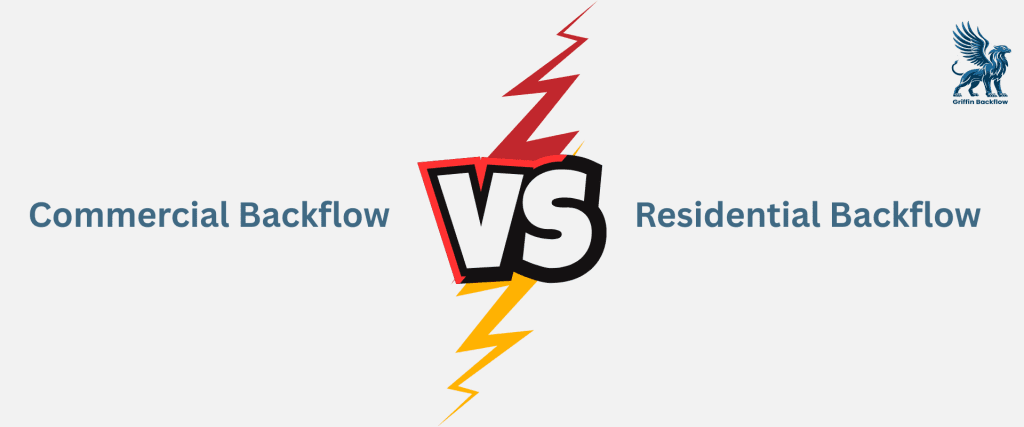Why Does Backflow Testing Matter for Everyone?
Whether you own a house, run a business, or manage a condo building in Vancouver, backflow prevention isn’t optional. Clean water is something we all count on. But when it comes to backflow testing, there are some key differences between what’s needed for commercial properties and what’s required for residential ones. If you’re confused about what applies to you, you’re definitely not alone.
What is Backflow Testing, Anyway?
Backflow testing is a simple process to make sure the water flowing into your property never mixes with anything it shouldn’t—like chemicals, fertilizers, or bacteria. A certified tester checks your backflow prevention device to ensure it’s working the way it should. This is especially important in Vancouver, where regulations are strict and safety comes first.

Commercial Backflow Testing in Vancouver
What’s Involved?
If you’re running a business, the stakes (and the requirements) are a little higher. Commercial properties often have complex plumbing, bigger water usage, and a higher risk of contamination. Think restaurants, dental clinics, car washes, or large apartment buildings.
Commercial backflow testing typically involves:
- Testing multiple devices (sometimes in hard-to-reach places)
- Keeping detailed records for city inspections
- Meeting strict annual deadlines—no exceptions
- Sometimes, coordinating after hours to avoid disrupting business
Why So Strict?
Commercial sites are often tied to more people and more potential hazards, so the city takes no chances. Missing a test or failing to repair a device can mean fines, health code violations, or even business closures.
Residential Backflow Testing: What’s Different?
If you’re a homeowner, the process is a bit simpler, but it’s just as important. You may only have one device, usually connected to an irrigation system, pool, or fire sprinkler.
Here’s what you can expect:
- Quick and straightforward testing (often less than an hour)
- Simple paperwork (sometimes handled entirely by your tester)
- Fewer city requirements, but annual testing is still a must
- Focus on safety for your family and neighbors
For most homes, testing is scheduled once a year, usually in the spring or before you start using outdoor water systems.
Key Differences at a Glance
| Type | Commercial | Residential |
|---|---|---|
| Number of Devices | Often multiple | Usually one |
| Regulations | Strict, detailed city oversight | Simpler but still mandatory |
| Risk Level | Higher due to complex plumbing & volume | Lower, but still possible |
| Testing Complexity | More technical, may require off-hours | Straightforward, flexible timing |
| Paperwork | Detailed records for inspections | Minimal, the tester usually handles it |
| Consequences for Non-Compliance | Fines, business risk, city shutdowns | Fines, risk to household water |
What Happens if You Skip Your Test?
Short answer: nothing good.
For commercial properties, you could face immediate fines, failed health inspections, and even forced closure until things are fixed.
For residential homes, the city can also fine you, but more importantly, your water isn’t as safe as it should be.
Why Trust a Certified Tester?
Certified backflow testers know the city’s requirements inside and out. They’ll make sure your test is done right, paperwork is submitted, and you stay on the city’s good side—whether you’re a business owner or a homeowner.
See why it’s important to use a certified tester in Vancouver.
Take Action: Protect Your Property and Your Water
- Homeowners: Book your annual test early, especially if you use sprinklers or have a pool.
- Business Owners: Schedule tests before your deadline, and keep those records handy for inspections.
- Everyone: Don’t ignore that reminder from the city. It’s there for a reason.
Have questions or need to book your backflow testing? Contact Griffin Backflow for honest advice and fast, professional service anywhere in Vancouver.
FAQs
Is backflow testing really required every year?
Yes, both commercial and residential properties must have annual tests in Vancouver.
Can I do the test myself?
No, only certified professionals can test and file reports with the city.
What if my business fails the test?
You’ll need to repair or replace the device—fast—to stay compliant and keep your doors open.
Does my home need a test if I don’t have a sprinkler or pool?
Usually, only homes with these setups need backflow prevention devices, but check with your plumber or ask us to be sure.
Wrapping Up
Backflow testing protects your water, your property, and your community. The process might look a little different for businesses than for homes, but the goal is the same: safe, clean water for everyone.
Need help or ready to schedule your test? Reach out to Griffin Backflow. We’ll take care of the details, so you can focus on what matters most.
Author
-

James is a certified backflow specialist with over 20 years of hands-on experience in plumbing safety.
He’s passionate about educating homeowners and businesses on the importance of clean water systems.
James simplifies complex maintenance tips through clear, practical advice.
When he's not writing, you'll find him inspecting valves or training the next generation of backflow testers.

